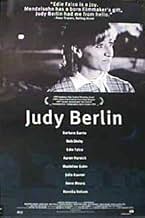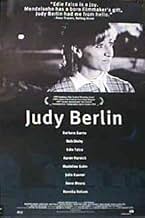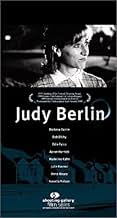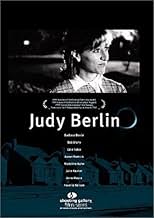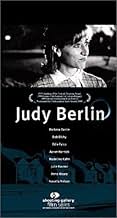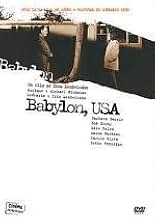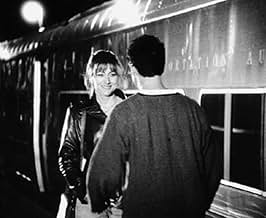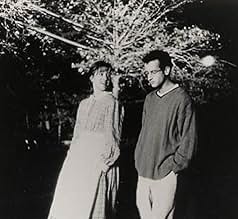IMDb RATING
6.9/10
1.1K
YOUR RATING
A lonely, talented teacher enjoys a flirtation with the (married) principal of the school, who returns her affections but is hampered by his family members. An eclipse enables the teacher an... Read allA lonely, talented teacher enjoys a flirtation with the (married) principal of the school, who returns her affections but is hampered by his family members. An eclipse enables the teacher and principal to steal several more fleeting moments.A lonely, talented teacher enjoys a flirtation with the (married) principal of the school, who returns her affections but is hampered by his family members. An eclipse enables the teacher and principal to steal several more fleeting moments.
- Awards
- 4 wins & 15 nominations total
- Director
- Writer
- All cast & crew
- Production, box office & more at IMDbPro
Featured reviews
In a film full of wonderful, low-key performances by actors playing lonely, unhappy characters, Madeline Kahn is the standout as a woman on the verge of a nervous breakdown. Unlike any other performance she gave in film, Kahn -- known for her comic roles -- turns in a marvelous, dramatic turn that should have netted her a posthomous Academy Award nomination. She is simply brilliant, and she should have been given a lot more dramatic roles in her career. After all, they say that comedy is the hardest thing for an actor to do, and with all the great comic roles she had -- in "Paper Moon," "Blazing Saddles" and "Young Frankenstein," just to name a few -- directors should have known that behind those funny faces was a great actress who could play any role.
This is an overlooked and sadly neglected little gem of a film, primarily because of some wonderful performances, especially the sadly underused Barbara Barrie. The other 3 main players are also wonderful, Bob Dishy, Madeline Kahn, and Bette Henritze. Edie Falco is competent without reaching their high standards. I don't understand the negative comments about the score as it's one of the better one's I've heard in years. Certainly better than anything by minimalist Phillip Glass, which another reviewer compared it to, and light years better than Danny Elfman or any of his other bombastic compatriots could devise. And it was nice to see a film of this nature done in black and white for once...and done so just because black and white can be as beautiful as color (though it's clearly not up to the standards of earlier Hollywood films), not because it's attempting to be some kind of pseudo-noir film.
Finding amusement in the thin, flat tract of routinized suburbia called Long Island is easy. Finding poetry in that glacial deposit of post-World War 2 optimism just a few miles from Manhattan is where storytellers usually stumble. The less visionary settle for rue or bitter satire. The more clear sighted (like first time feature director Eric Mendelsohn) in his haunting and hopeful "Judy Berlin" sustain a reverence for such dappled things as the fuzzy cry of Long Island Railroad whistles, the hushed moments when streetlights snap of at dawn, and the hum of the vacuum cleaners as black housekeepers tidy the living rooms of their white employers. When I first saw this drama at Sundance a year ago, I liked it. On second viewing, I think I love it. "Judy Berlin" is about fuzzy, hushed, humming moments of possibility experienced by an interrelated assortment of Long Islanders on an early autumn day when an eclipse upsets ordinary routine. It's also more specifically, about a sunny woman and a moony man who cross paths just as magically. In Mendelsohn' astronomy, 30ish Judy herself ("The Soprano's" Edie Falco) represents the Island at its most resilient. Friend to everyone in her hometown, she's a former tough girl and current aspiring actress with a mouthful of braces and no particular talent except for enthusiasm. And on this day she's saying her goodbyes before she tries her luck in Los Angeles. Judy's former high school classmate David Gold (Aaron Harnick) is a walking amalgam of everything arrested, depressed and stultified from that same address - the lost boy who never grow up. An aspiring film-maker, he went to L.A. only to return home, defeated, to his parents. Judy bubbles; David despairs, in Woody Allenish cadences. (Mendelsohn used to work as an assistant to Allen's costumer.) Yin and yang, light and dark, night and day. The film-maker balances the two with gyroscopic poise, while those around them weigh their own options for transformation. Holding the mother together as much as the sweetness of the performances is cinematographer Jeffrey Seckendorf's velvety black and white photography, which lavished the same admiration on knick-knackery in the Gold's living room as it does on trees swaying from the flapping wings of birds feeling the approaching eclipse. But "Judy Berlin's" sustained loveliness and the graciousness with which Mendelsohn acknowledges what's precious and what's paralyzing about the place he comes from - well, that is the film-maker's own gift from the suburbs.
After reading all the reviews of people complaining about either how pretentious or boring "Judy Berlin" was, I just had to write something about how incredible this movie is. It is the complete opposite of pretension. Real people, living real lives, catching us up in their emotion as we recognize and identify with their loneliness. I just don't get how this is pretentious. Perhaps it could be because "pretentious" is a word most people throw around to sound smart without knowing what it means. "Pi" is pretentious, "Judy Berlin" is not. Filled to the brim with haunting and incredible performances, it evokes Allen's more insightful dramas, such as "Interiors," as well as Ingmar Bergman's best work. And yet, Bergman is not in style now. Mass culture goes more for the insane mind-benders, like "Fight Club" and "Being John Malkovich." Even though both were great movies, "Judy Berlin" is better. It is an exploration of the souls of a small town. Madeline Kahn, Edie Falco, Barbara Barrie, and Bob Dishy are all superb, completely immersing themselves in their roles. Not to mention the gorgeous cinematography or the incredible harpsichord soundtrack. "Judy Berlin" has a lot to say, if you'll just listen to it.
This is the neglected gem of last year, and in my estimation the best film of the year.
Think of it as a middle-class Ice Storm, but while the upper-class suburbanites of Ice Storm were too distant and unreal to care about, the middle-class lives depicted in Judy Berlin are very real and both heart-breakingly sad and genuinely funny (without caricature or directorial mocking). I've often heard the phrase laughing through tears, but never experienced it until seeing this film.
The performances are without exception incisive and dead-on. Of particular note: the counterpoint of Aaron Harnick's sad, lost David and the open-faced lifeforce that is Edie Falco's Judy; Barbara Barrie's portrait of a loving schoolteacher -- with an edge; Bob Dishy's sullen and conflicted Arthur, among the most subtle work in this usually comic actor's long career; and Madelyn Kahn in her final film role, touching and hilarious (as always) as a housewife on the verge of a nervous breakdown. Her scene when she encounters her psychiatrist while aimlessly wandering the streets during the eclipse, and manages to offer him words of comfort, is the film's defining moment -- a film of beautifully etched characters behaving in very real yet very surprising ways in moments of conflict filled with shades of gray.
Speaking of which, the film is shot brilliantly in black and white to point up both the beauty and the horror of this suburban landscape.
However did this film languish on a shelf for two years? If film scripts were eligible for Pulitzer Prizes, Eric Mendelsohn's would have surely been a contender.
Think of it as a middle-class Ice Storm, but while the upper-class suburbanites of Ice Storm were too distant and unreal to care about, the middle-class lives depicted in Judy Berlin are very real and both heart-breakingly sad and genuinely funny (without caricature or directorial mocking). I've often heard the phrase laughing through tears, but never experienced it until seeing this film.
The performances are without exception incisive and dead-on. Of particular note: the counterpoint of Aaron Harnick's sad, lost David and the open-faced lifeforce that is Edie Falco's Judy; Barbara Barrie's portrait of a loving schoolteacher -- with an edge; Bob Dishy's sullen and conflicted Arthur, among the most subtle work in this usually comic actor's long career; and Madelyn Kahn in her final film role, touching and hilarious (as always) as a housewife on the verge of a nervous breakdown. Her scene when she encounters her psychiatrist while aimlessly wandering the streets during the eclipse, and manages to offer him words of comfort, is the film's defining moment -- a film of beautifully etched characters behaving in very real yet very surprising ways in moments of conflict filled with shades of gray.
Speaking of which, the film is shot brilliantly in black and white to point up both the beauty and the horror of this suburban landscape.
However did this film languish on a shelf for two years? If film scripts were eligible for Pulitzer Prizes, Eric Mendelsohn's would have surely been a contender.
Did you know
- TriviaMadeline Kahn's final feature film.
- GoofsThe film takes place while a solar eclipse is in progress. The sky goes so dark that the streetlights come on. Much of the story continues through this "dark time". A real eclipse has this totality and darkness for about two minutes, tops! The total eclipse in "Judy Berlin" just goes on way too long.
- Quotes
Alice Gold: I wanted children and I gave birth to a viper.
- ConnectionsReferences La quatrième dimension (1959)
- SoundtracksSerenade No. 10 in B-flat
Composed by Wolfgang Amadeus Mozart
Performed by The New York Philharmonic Chamber Ensemble
Details
- Release date
- Country of origin
- Official site
- Language
- Also known as
- Judy Berlin
- Filming locations
- Production companies
- See more company credits at IMDbPro
Box office
- Gross US & Canada
- $61,236
- Opening weekend US & Canada
- $61,236
- Feb 27, 2000
- Gross worldwide
- $61,236
- Runtime1 hour 33 minutes
- Color
- Sound mix
- Aspect ratio
- 1.85 : 1
Contribute to this page
Suggest an edit or add missing content


